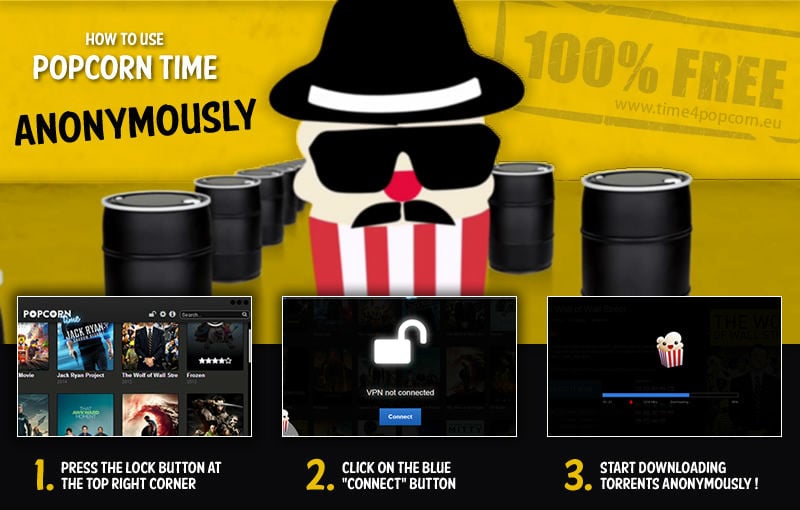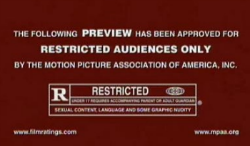TorrentFreak Email Update |
| MPAA: Consumer Right to Resell Online Videos Would Kill Innovation Posted: 08 Jun 2014 04:16 AM PDT
In other words, whether consumers should be allowed to sell digital videos, music files and software they purchased previously. Proponents of the rights to resell digital goods want the First Sale Doctrine to apply in the digital domain as well. However, this argument is meeting fierce resistance from the entertainment industries who see this right as a threat to their online business models. For example, the record labels previously pointed out that MP3s are simply too good to resell, as they don’t deteriorate in quality. Responding to the hearing in Washington, the MPAA also voiced its critique of the plans. According to the movie studios digital resales would hamper innovation, increase prices and decrease the availability of online film. In their view it would undo most of the innovation the Internet brought. “Critics say the movie and television industry was slow to embrace the Internet. But ironically, now that online video is ubiquitous, some of these same critics are trying to reverse time and drag the creative community—along with audiences—back into the pre-Internet era,” MPAA’s Neil Fried notes. The ability to resell movies bought on the Internet has the potential to create a huge secondary market. This would make it much cheaper for consumers to access media, and the MPAA believes therefore that content creators will be wary of making it available in the first place. “A new government mandate requiring creators to allow reselling of licensed Internet content would undermine incentives to create, reduce consumer choices, and deter innovation,” Fried argues. “Forcing creators to allow resale of Internet content they license would either require creators to substantially raise prices or discourage them from offering flexible, Internet-based models in the first place,” he adds. The MPAA believes that those who want to own movies and resell them should stick to the offline world. The physical ownership model doesn’t translate to the online world, which is better off with a licensing scheme that restricts resales. “This is a relatively new marketplace. Government intervention now, seeking to force the content community to return to a 1908 construct built around physical ownership, will only short-circuit the experimentation and innovation that is going on all around us,” Fried says. Of course there are also many people who object to the arguments of the copyright holders. John Ossenmacher, CEO of the MP3-reselling platform ReDigi, gave a testimony during the congressional hearing where he laid out a variety of counterarguments. According to Ossenmacher the content owners are trying to change consumer rights that have been in place for more than hundred years, only to guarantee maximum profit for themselves. “The First Sale doctrine is premised on a simple concept – you bought it, you own it – and it has never concerned itself with a specific format or technology, nor with the condition of the goods being resold. It establishes the commonsense principle that the creator deserves to be paid once, and then the owners, and subsequent owners, have the right to resell that good, to donate it or to give it away,” Ossenmacher said in his testimony. “It is not an extreme position to advocate that ‘you bought it, you own it.’ It is a logical, conservative position that adheres to the long-standing principles of law. It applies in every other type of good; it should apply here as well,” he added. It will be interesting to see how this debate plays out in the months to come. One thing is for certain, we haven’t heard the last of it yet. Source: TorrentFreak, for the latest info on copyright, file-sharing and anonymous VPN services. |
| ‘Popcorn Time’ Gives Users Anonymity With a Free Built-In VPN Posted: 07 Jun 2014 11:54 AM PDT
Overwhelmed by the response the original team quickly retired. However, since the code is open source, many competing forks quickly adopted the project, each taking it in a different direction. Time4Popcorn is one of the most users reincarnations of Popcorn Time. The team behind the project has introduced several new features to their version, including TV-show listings and Android support. These changes definitely increased the appeal of the application, but there was a threat lurking around the corner. In common with all other BitTorrent-based software, copyright holders are actively monitoring the activities of people who pirate their works. This already resulted in fines for German users of a Popcorn Time fork, but users in the United States and other regions where copyright trolls are active face the same risk. To counter this “threat” the Time4Popcorn team decided to implement a VPN feature, for free. “Throughout these last months we realized that making the ultimate watching experience for everyone is important. However, something that is even more important to us is that everyone will be able to get this experience without risking themselves,” the Time4Popcorn team tells TorrentFreak. The news about the settlement requests prompted the developers to include a VPN option to anonymize use of their client. This week the feature was added to the latest 4.2 Alpha release. By clicking a lock icon users can quickly connect and disconnect the built-in protection. Although it may take some more time before a stream starts playing, it appears to work just fine. “Thanks to the new VPN feature everyone from anywhere in the world will be able to use Popcorn Time, worry free. That makes us very happy,” the team tells us.  The VPN itself is not run by the Popcorn Time team. Instead, they came to an agreement with the VPN provider Kebrum, who are offering their services for free. TorrentFreak reached out to Kebrum to find out why they agreed to join the project. “There are not a lot of opportunities in life to be a part of a revolution and we have recognized this opportunity. One of the main goals of the company is to bring back the anonymity to the internet,” Kebrum’s Martin tells us. “We believe Popcorn Time is the revolution that will change the entertainment industry forever. And now, with our help, Popcorn Time can do for the world of internet anonymity the same as they will do for the world of entertainment.” This revolution does come at a cost for the company, as it has to pick up the bills. However, Kebrum believes that the brand exposure will make up for this investment. The traffic shouldn’t be a problem for the company, as it has plenty of resources available. “From our experience and the expected usage stats provided by Popcorn Time, we believe that the resources we allocated for Popcorn Time users should be enough in order to give a good and fast download experience. Our servers are prepared to handle the traffic,” Martin says. As with all other features, the VPN functionality is released as open source under a GPL-V3 license. The Time4Popcorn team plans to inform its users about the new VPN feature in the coming days, and once it’s included in the stable release older versions will update automatically. Source: TorrentFreak, for the latest info on copyright, file-sharing and anonymous VPN services. |
| You are subscribed to email updates from TorrentFreak To stop receiving these emails, you may unsubscribe now. | Email delivery powered by Google |
| Google Inc., 20 West Kinzie, Chicago IL USA 60610 | |

